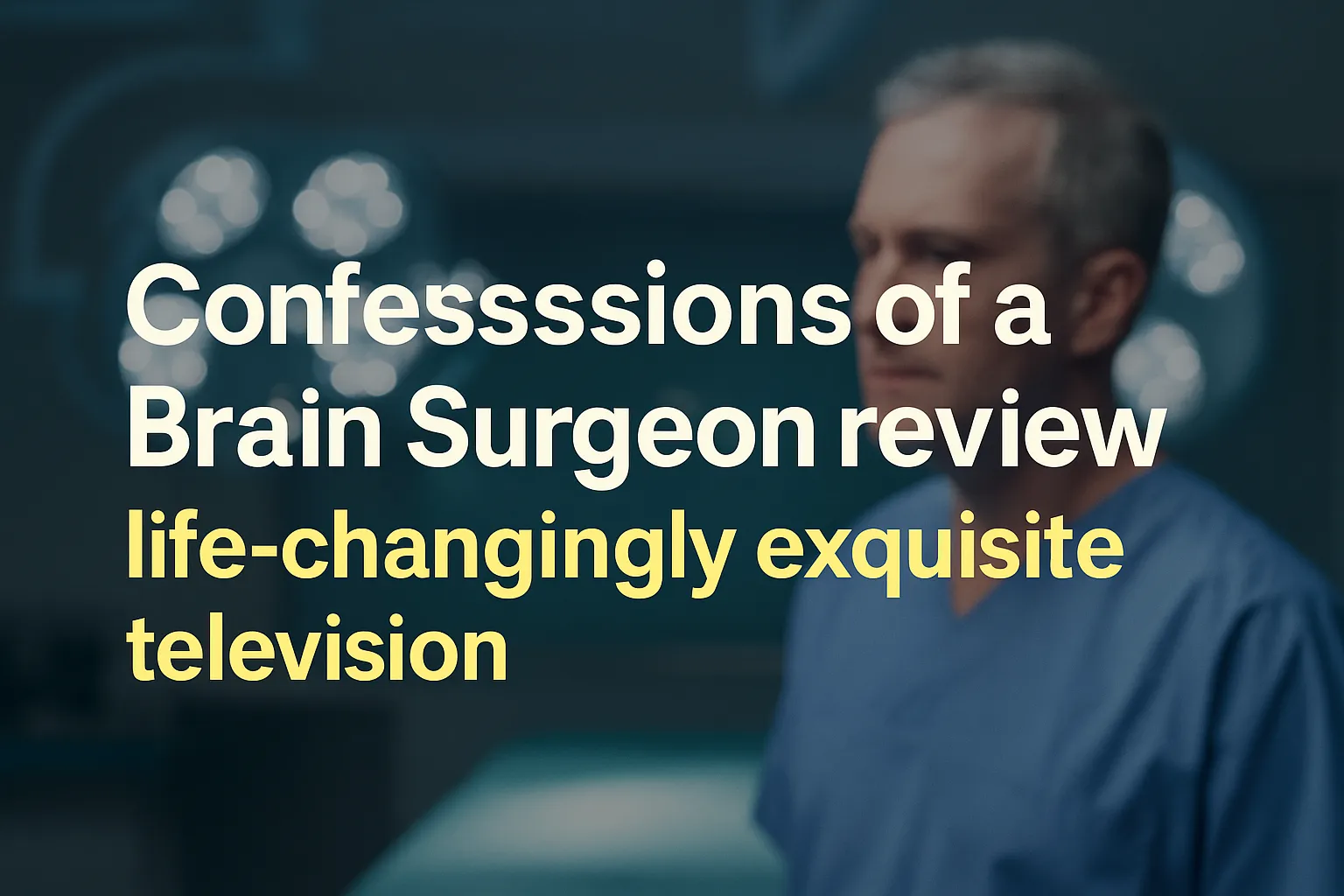Confessions of a Brain Surgeon review life changingly exquisite television
Confessions of a Brain Surgeon is the rare medical series that feels both clinically precise and emotionally generous. It invites us into moments where a millimeter matters, then steps back to sit with the cost of those millimeters. The result is life‑changingly exquisite television—tender, exacting, and honest about uncertainty.
What makes it extraordinary
- Radical clarity: Complex procedures are explained with plain language and calm pacing, never dumbing down the science.
- Human first, medicine second: The camera stays with families before and after surgery, honoring fear, hope, and consent.
- Ethics in the room: Decisions are shown as trade‑offs, not heroics—risk, prognosis, and quality of life are weighed in real time.
- Quiet craft: Natural sound, restrained score, and clean editing keep attention on people, not spectacle.
Standout moments
A pre‑op conversation in which probabilities are drawn on paper says more about trust than any voice‑over. A post‑op check‑in—nothing dramatic, just a hand squeeze and a small smile—lands like a thunderclap. The show understands that outcomes live in details: a word recalled, a finger moved, a future reopened.
Where it holds back
- It sometimes trims the messiness of long‑term recovery; follow‑ups are brief compared to the intensity of the operating room.
- The surgeon’s inner life is carefully contained; viewers wanting biography over practice may find it reserved.
Themes that linger
- Precision and humility: Expertise is shown as disciplined doubt, not certainty.
- Care as a team sport: Nurses, anesthetists, and radiographers receive meaningful space.
- Hope vs. harm: The line between “can” and “should” is revisited case by case.
Verdict
Essential viewing. If you crave medical TV that treats patients as partners and intelligence as empathy, this is for you. It won’t chase adrenaline; it earns awe. Expect to learn something about the brain—and a lot about how to be with other people when answers are fragile.
Who should watch
- Fans of thoughtful medical documentaries and character‑driven nonfiction.
- Students and clinicians interested in communication, consent, and ethics.
- Anyone who appreciates quiet television that leaves a lasting echo.

